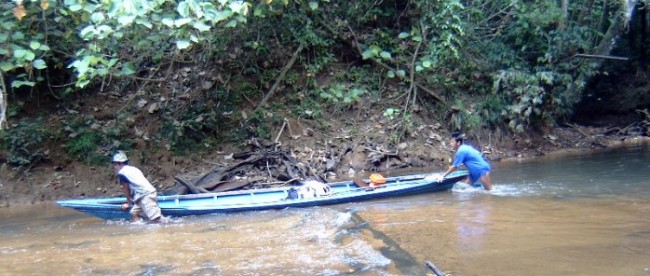EMDI seminar – encouraging progress for exploration
EMDI seminar – encouraging progress for exploration. [Posted 1 Oct 2015, 40 views, 11 likes, 0 comments]
EMD Indonesia seminar held in Jakarta on 29 Sep 2015 looked at a range of exploration issues. The seminar presented significant insight and detail on the Indonesian exploration industry that is not fully reflected in the brief notes below. These EMDI seminars are typically held every 2-3 months and are well worth attending. Their web site iswww.emdindonesia.com
Myke Jones opening remarks outlined some interesting points from the recent Macquarie Bank seminar – reflecting change and advancement of the ESDM, with examples of significant staff changes at ESDM and pushing ahead to resolve the IUP situation plus develop further towards broader IT operation.
Sri Rahardjo (Dir of development program for minerals & coal) outlined the progress in developing the Minerba One Map Indonesia (MOMI). It is now available to a select 107 ministries & government officials, including those in the provinces. MOMI includes ESDM coordination with a number of departments, including tax, regional government etc. The road map for development in 2016 includes map restructuring (to multi layers), publishing, non-spatial data base integration. For 2017 the development includes integration with external systems (tax, transportation etc), Online digital reporting (maps, geodata, quarterly reports etc) & integrated mining administration systems. It is intended to comply with the broader terms of transparency and become openly available to the public around the end of 2016. Sri indicated the tax & royalty aspects may be suitable for easier EITI compliance. The audience supported this award winning GIS system and encouraged Sri to keep the focus on this work.
Rozik Soetjipto outlined the history of the exploration and mining industry from the perspective of the Mines Department. His experiences emphasize the need for professional management at all levels of government. Of particular note is that the Bre-X scandal unexpectedly exposed the government to the power plays of the Presidential family (Suharto) and other key businessmen, emphasizing the moral pressures that can be placed on government officials. Also Rozik’s experience in Freeport heightened the frustration of exploration companies wherein they are required to conduct CSR programs and comply with numerous regulations – essentially to do everything miners do, except mine and have an income.
Bill Sullivan outlined a number of recent legal and administrative developments related to the exploration & mining industry. These included the mineral export ban, COW renegotiations, BKPM control of IUP’s, the IDR requirement and work permits. Much of these topics were viewed from a political angle, wherein the nation is split between those that follow resource nationalism, and others supporting economic / political reality. The other trend that continued through these topics was the mixed signals from the Government supporting reform but implementation often increasing obstacles. Bill expressed a personal opinion that Jokowi is a popularist president wherein job creation is of paramount importance. In this regard the various policies related to mining (particularly the smelter policies) are critical to achieve increased employment before the next national elections in 2019. Bill noted that a new American shareholder of Freeport is likely to press Freeport into a corner regarding the COW renegotiations, and the rest of the mining industry may be influenced by this event. Bill’s views of Indonesia changes through time, with the present position as “two steps forward, three steps back”.
Malcolm Baillie mentioned a number of points from the EMDI submission for a review of the mining law. EMDI recognizes that many people in the government do not understand exploration, and this 30 page submission is designed to emphasize the nature of exploration as distinct from mining. Some points brought forward include; 1) an emphases that exploration has an immediate benefit for the local population (employment and support functions), 2) that the moratorium on new tenements has been going on for 6 years and is killing the exploration industry, 3) that exploration expenditure in Indonesia is significantly down on past years, 4) that the level of exploration is far below that needed to replenish Indonesia’s reserves that are consumed by mining, 5) that there is no need to impose local equity on foreign explorers until the construction / production phase, 6) there are too many levels of government and too many permits, 7) inactive exploration tenements should be terminated to allow for turn-over of exploration ground, 8) processing / smelting obligations are one-size-fits-all approach, wherein there should be room to consider the unique mineral nature of each deposit etc.

